New health risk assessment further gauges employee wellness interests
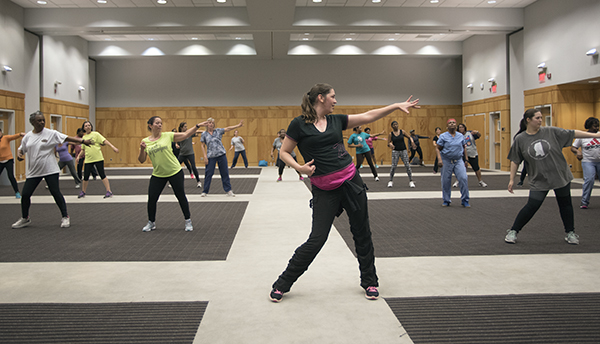
University of Mississippi Medical Center employees want to see more healthy cafeteria options - raw fruits and veggies, and fix-it-yourself salads - and less fried and sugar-laden fare.
They want new ways and places to exercise on campus during the workday, and more appealing and accessible outdoor spaces for walking. And, one employee suggests, UMMC needs “some kind of weight-lifting class focused on middle-aged, overweight women.”
More than 2,300 of the Medical Center's 10,000 employees completed a workplace wellness interest survey in October 2016, sharing their ideas on making UMMC a place where employees have plenty of opportunities to work on wellness.
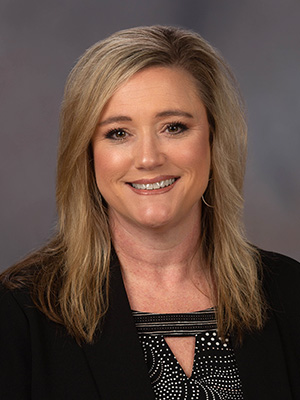
“More than anything, they talked about physical health and fitness, and the cafeteria offerings,” said Brea Cole, the Department of Preventive Medicine's medically integrated wellness program manager and a UMMC Wellness Champion.
Cole and department chair Dr. Josh Mann want employees to know they've been heard loud and clear, and that plans are under way to incorporate more of their ideas across campus. Part of that involves a confidential follow-up survey in February that will ask employees for a new layer of information that will help the Medical Center better tailor improvements.
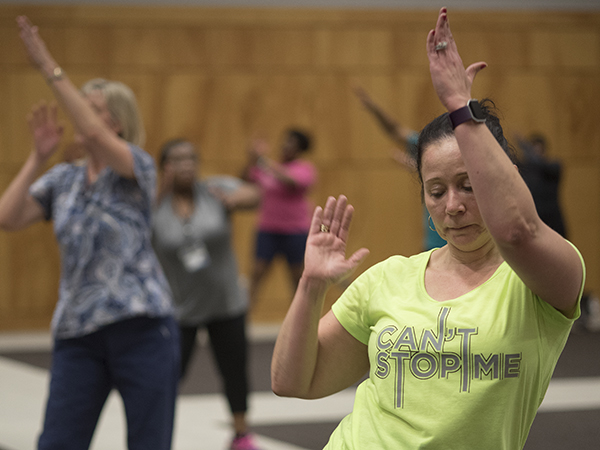
Jessie Lindsay, director of operations for The MIND Center, takes part in UMMC's Zumba class for employees.
The work is being done by UMMC's wellness committee, a group of 20 employees dedicated to finding ways to help the Medical Center family live a healthy lifestyle. As Wellness Champion, Cole meets with the group to brainstorm and implement improvements.
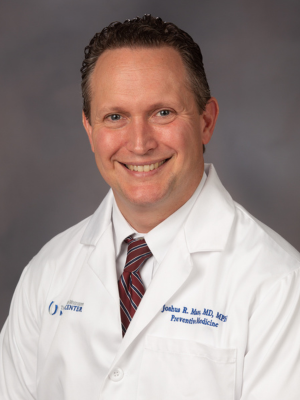
“This health risk assessment survey will help us get to the next level, first by giving us greater insight into the health of our employees and where we need to focus in order to have the biggest impact,” Mann said.
The second survey seeks additional personal demographic details - for example, height and weight, age, how often they exercise and whether they smoke or have significant alcohol consumption.
It asks employees what they believe their health is in general, choosing from excellent, very good, good, fair or poor. It asks how long it's been since an employee visited a doctor for a routine checkup, how much sleep they get, and if they cope with any chronic health problems.
“It will give us a better idea of what healthier activities we need to have on campus,” Cole said.
That's to add to improvements since the first survey was given. Among them:
- Fresh fruit stations have been added at the cafeteria front entrance, center and checkout stations. Sandwiches and salads in the grab-and-go section now have calorie information; chips at checkout are now all baked, and each checkout station now has granola bars and water within easy reach. Also new: a yogurt bar with fresh fruits, and nutritional value cards at entrée serving stations that list serving size, calories, total fat and carbs, and protein.
- Monthly free Zumba classes are offered on the main campus.
- Indoor and outdoor walking maps are posted on the Department of Preventive Medicine webpage, and signs are being posted to remind employees to take the stairs to pump up physical activity.
- “Wellness Champions” on campus are helping to spread the word on workplace wellness and how employees can get involved.
- There's an added emphasis on group campus wellness activities - for example, National Walking Day observed the first Wednesday in April and educational wellness seminars.
- Vending machines have been updated with additional healthier options, and there will be three vending machines on campus located at Wiser Hospital, the Pavilion and next to the library that stock nothing but healthy options.
- Plans are in the works for an on-campus health fair and health screenings, and a farmer's market easily accessible on campus is being explored.
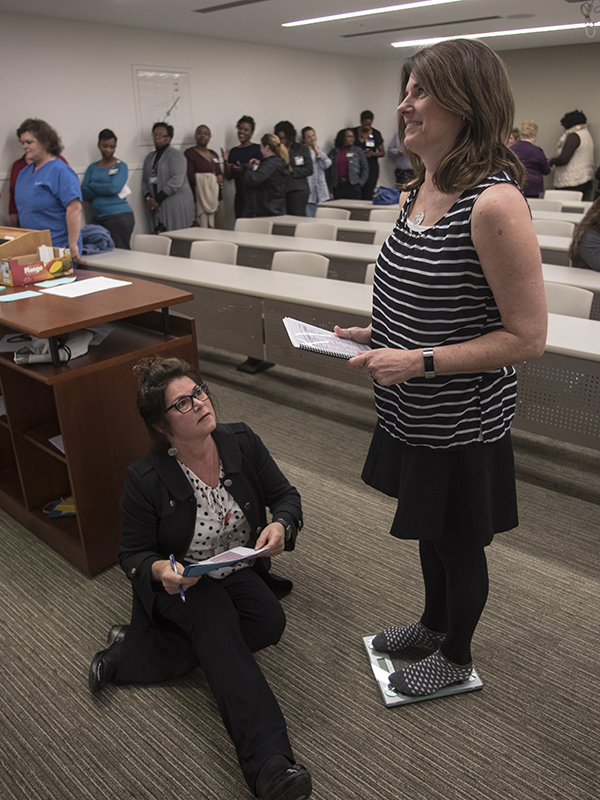
Michelle Clark, an education administrator in the School of Dentistry, weighs in under the watch of Kelli Irby, executive assistant in the Office of Medical Education who leads employees in a weight-loss challenge.
“We want people to take the new health risk assessment survey so that we can take our workplace wellness mission further,” Cole said.
DeShundra Barnes, admissions officer for the School of Medicine, is enrolled in a weight-loss challenge class being conducted on campus by Kelli Irby, a Wellness Committee member and executive assistant in the Office of Medical Education. “I decided to live a healthy lifestyle,” Barnes said.
Barnes said she's not heavy-set, but needs to be healthier for her 7-year-old son. “He's active, so I need to be active,” she said. “I'm walking more. I use the catwalk for lunch - I have lunch for 30 minutes and then the catwalk for 30 minutes, and then I walk again later in the afternoon.”
Her diet, Barnes said, is “a 180-degree change.” Instead of a Chick-Fil-A biscuit for breakfast, she now eats a healthy meal such as carrots and yogurt.
Campus changes that promote wellness and a healthy lifestyle will remain ongoing, Mann said.
“We plan to repeat the survey periodically so that we can look for changes that indicate where we are having an impact, and where more focus is needed,” he said.


